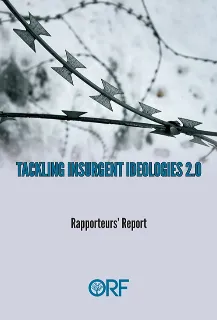Implementing the Christchurch Call: Towards a global CVE agenda
The year 2019 witnessed some of the most brutal terror strikes in recent memory. Separated by ideology, but united by violence, extremists struck New Zealand and Sri Lanka at the very core of their multicultural, multi-religious national ethos. In India, the suicide attack in Pulwama in Jammu and Kashmir brought the country to a war-like situation. In neighbouring Afghanistan, as it prepares for elections, candidates who choose to enter the democratic sphere continue to be targeted by Taliban-backed insurgents.
All these incidents serve to highlight just how committed radicalised extremists are to violence, whether they are groups or individuals, and how deftly they loop between violent ideologies, technology, and terrorism. The democratisation of the media space through social media has come with attendant challenges: while technology and platforms may be value-neutral, what happens when malevolent actors use these to their advantage to radicalise and recruit individuals as their foot-soldiers? The loop is evident — whether it was the livestreaming of the attacks in Christchurch, the online radicalisation of the Easter bombers in Sri Lanka and their use of digital platforms to communicate during the attack, or the virality of a video message on social media by the Pulwama attacker.
Christchurch also brought to the forefront another key challenge confronting governments, civil society actors and researchers working to develop effective policies that counter violent extremism (CVE). The United Nations Security Council (UNSC) emphasises the need for a comprehensive approach to tackling the spread of terrorism and violent extremism, and asks member states to promote inclusion and cohesion within their borders, to engage with relevant local communities, and to address conditions that abet the spread of violent extremism by empowering youth, families, religious and cultural organisations. The Christchurch attacks underscored the huge gulf in the willingness of member states to acknowledge the reality that one kind of violence often feeds another.
Yet, some good must emerge from the bad. Indeed, 2019 saw the emergence of a fresh resolve to mobilise effective responses to violent extremism. The Christchurch Call to Action Summit that took place in Paris in March 2019 was the first time that States and technology companies attempted to ideate and execute a common and coordinated strategy to eliminate terrorist and violent extremist content online. Seventeen countries, including India, became signatories to the Christchurch Call, but it is imperative that more countries sign on. As the world continues to grapple with the aftermath of the fall of ISIS in Iraq and Syria and deal with the challenge of returning foreign terrorist fighters (FTFs) in home countries where they are no longer welcome, questions abound on whether rising tensions between religious and racial identities fuel radicalisation across divides. While creating CVE policies, it is imperative to tackle identity- and ideology-based polarisation, and combat hate-fueled rhetoric in public spaces to ensure that these do not drive individuals towards violence.
As the global political barometer increasingly shifts towards insularity, protectionism and propaganda-driven populism across countries, the CVE community is faced with a varied set of challenges. Whether it is on the question of dealing with returning ISIS FTFs, and preventing their move to different geographical theatres; or combatting majoritarian groups that rally around grievances, race or religion and fuel extreme violence — we need to ask ourselves how much more vulnerable we are today, and identify where the faultlines lie. While addressing these challenges, it is equally necessary to ensure that the protection of human rights and fundamental freedoms are balanced as governments address security priorities.
It is with the desire to see more global conversation on the manifold ideologies that drive violence and the responsibility of governments, platforms and civil society engaged in CVE initiatives that the Observer Research Foundation (ORF) organised the second iteration of Tackling Insurgent Ideologies, with the theme “Implementing the Christchurch Call: Towards a global CVE agenda.” We brought together a diverse group of policymakers, researchers and practitioners involved in the process of developing strategies that deal with the proliferation of radicalism and violence to debate and discuss best practices, learnings and a way forward.
The views expressed above belong to the author(s). ORF research and analyses now available on Telegram! Click here to access our curated content — blogs, longforms and interviews.

 PDF Download
PDF Download



 PREV
PREV


